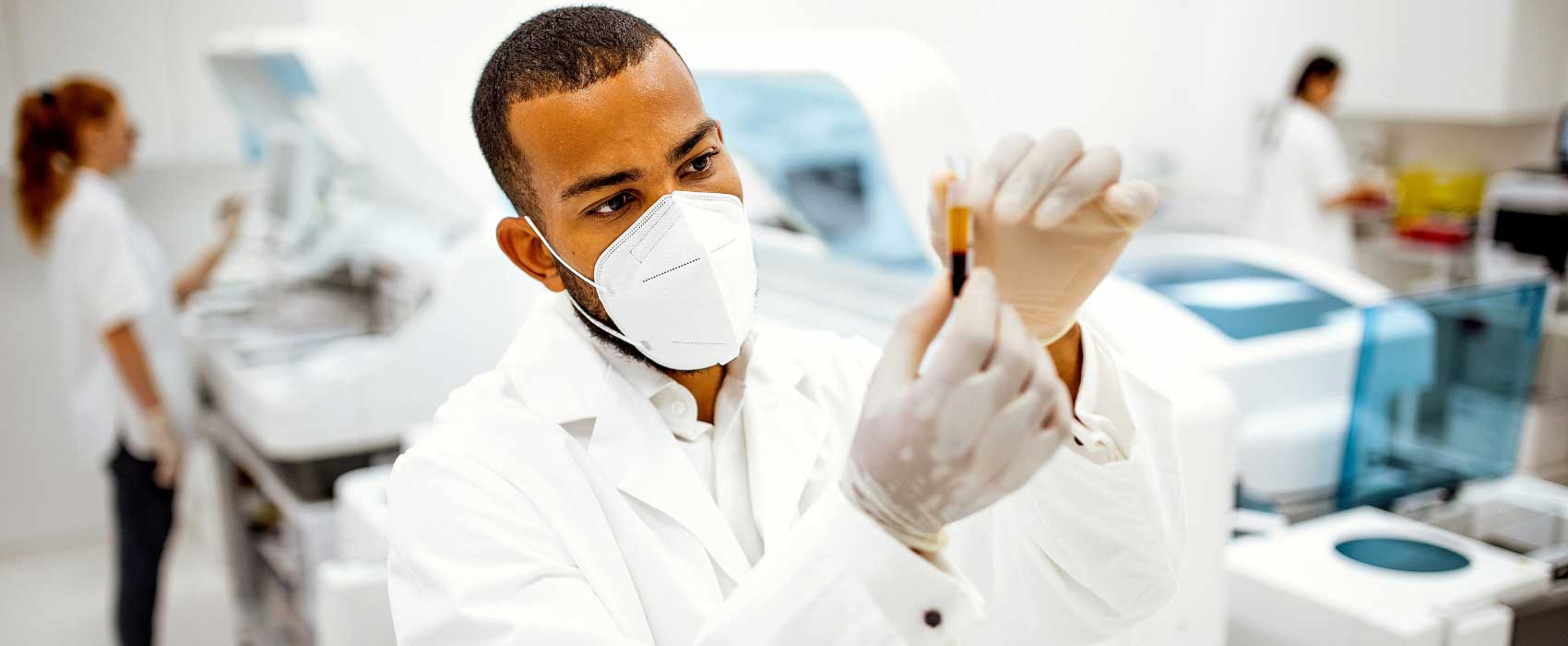
According to New York Presbyterian, there are more than 268,000 new cases of prostate cancer, 81,000 new cases of bladder cancer, and 79,000 new cases of kidney cancer in the United States each year. Millions more are diagnosed with urologic conditions like incontinence, nocturia, kidney stones, and other common urologic conditions. While the prevalence increases with age, urology care should be part of any healthy lifestyle. But is there any way to predict whether you'll experience one condition over the other? Can doctors tell you your risk of developing urology-related cancers? Here, we'll cover everything you need to know about genetic testing for urological conditions and cancer detection.
How Does Genetics Impact Your Health?
Every person inherits a unique set of genes from their parents, which can predispose them to certain inherited disorders. Understanding your genetics can give you a better idea of your likelihood of developing common diseases like diabetes, heart disease, and certain types of cancer.
Genetic variations can also impact how individuals respond to medications, which is essential for personalized medicine approaches that aim to tailor treatments based on genetic profiles. Undergoing genetic testing gives you a chance to take control of your lifestyle. It allows individuals to know their risks and act accordingly both before and after mutations occur.
Genetic testing also helps urologists personalize patient care by identifying those at higher risk, allowing for more rigorous surveillance, early detection, and tailored treatment strategies.
What is Genetic Testing?
Genetic testing is a medical process that involves analyzing an individual's DNA to identify changes, mutations, or variations in their genes, chromosomes, or proteins that could affect their health. This testing can utilize various techniques, including sequencing DNA for specific mutations, examining the structure and number of chromosomes for abnormalities or deletions, and analyzing proteins to detect functional anomalies caused by genetic variations. It can be performed using a blood sample, saliva, amniotic fluid, or other viable tissue.
Genetic testing helps individuals uncover their risk of developing certain conditions and diseases to gain peace of mind and create a more proactive health plan. While testing for breast or ovarian cancer has been done for decades, doctors have uncovered biomarkers for other genetic mutations to screen individuals for a variety of conditions. Now, your urologist can help you determine your risk of developing prostate cancer, bladder cancer, kidney cancer, and more.
Genetic Testing for the Risk of Prostate Cancer
Prostate cancer affects over 250,000 men in the US each year, but the 5-year survival rate for localized cancer cells is nearly 100%. Meanwhile, men with metastatic prostate cancer have about a 32% 5-year survival rate. While the numbers can be scary, it's all about early detection. It's thought that up to 20% of prostate cancers have some sort of genetic component, so it's worth the added effort. Undergoing hereditary testing can help you catch signs of mutations and start treatment before it spreads.
Due to the stark differences in survival rates, genetic testing for prostate cancer is one of the most commonly performed genetic screenings within the urology field. Plus, individuals with prostate cancer genetics tend to be associated with aggressive forms if they develop mutations themselves, making early detection even more important. In cases of inherited prostate cancer, different treatment options may work effectively (e.g., PARP inhibitors vs. chemotherapy). Your doctor may also recommend a prostate-specific antigen (PSA) test or prostate biopsy, depending on your circumstances.
To determine your risk for prostate cancer, your doctor will look for specific genes linked to mutations. These include BRCA1, BRCA2, HOXB13, ATM, and genes commonly known as DNA mismatch repair linked to Lynch Syndrome.
Getting genomic testing for prostate cancer can also help you determine your children's risk for developing certain conditions, regardless of gender. The BRCA1 and BRCA2 genes have been found to link prostate cancer to breast and ovarian cancer and tend to have about a 50% chance of being passed down.
Genetic Testing for Bladder Cancer
Genetic testing can also be used to determine your risk of developing bladder cancer. Similarly to prostate cancer genetics, a germline test can tell you if you're likely to develop any mutations within your bladder cells or if you have any biomarkers that indicate future issues. In low-grade urothelial carcinomas (cancer of the bladder's lining), 65% to 80% had mutations in the FGFR3 or HRAS genes. Other affected genes can include BAP1, TP53, and FGFR3. The presence of genes linked to Lynch Syndrome can also indicate an increased risk of developing bladder cancer.
Knowing whether you have genes that can result in cell mutations can help you make lifestyle changes to reduce your risk of developing bladder cancer.
Genetic Testing for Kidney Cancer Genes
Similar to the approach for bladder cancer, a germline test can reveal whether you're likely to develop mutations within your kidney cells or have biomarkers indicating potential future issues. In cases of renal cell carcinoma, the most common form of kidney cancer, mutations are most commonly found in the VHL gene. Hereditary conditions such as von Hippel-Lindau disease, hereditary leiomyomatosis, and renal cell cancer (HLRCC) are also associated with increased kidney cancer risk due to specific genetic mutations. Additionally, genetic testing can assess the risk of kidney stones in individuals with ongoing symptoms.
Who Should Undergo Genetic Testing for Urological Conditions?
Anyone with a family history of cancer can benefit from having their genomic profile analyzed. You may also want to get some type of genetic testing done if you're not sure about your family history or have other factors that are associated with an increased risk of developing certain cancers or conditions.
Additionally, men who have already been diagnosed with advanced prostate cancer or individuals with other urologic conditions may want to undergo screenings to determine future family members' cancer risks or additional complications. For example, prostate cancer patients with a high Gleason score (which determines the aggressiveness of a cancer) are advised to undergo genetic testing.
When your doctor understands your medical genetics better, finding an effective treatment plan may lead to more positive outcomes. If you're unsure whether genetic testing is right for you, talk to your urologist or primary care physician.
How Are Genetic Tests Performed?
Two different types of genetic testing can be performed: germline testing and somatic testing. Germline testing looks for any type of genetic or germline mutation that could have been inherited from a strong family history. Your doctor will check this by either taking a saliva sample or doing a blood test. Somatic testing is done after a diagnosis is made on the affected tissues. This will require a biopsy and can help provide more information on treatments for patients or the role of genetics in their condition.
For both, the process begins with sample collection and ends with genetic counseling. Once the sample is collected, DNA is extracted from the cells by breaking them open to release their DNA, then purifying it to remove proteins and other contaminants. Extracted DNA will need to be amplified using a polymerase chain reaction (PCR) to create millions of tiny copies of your DNA segments. Afterward, DNA sequencing and analysis will be performed to identify and detect mutations, duplications, deletions, and translocations. A specialist will interpret the results and pass them to your healthcare provider to be reviewed with you or a genetic counselor.
Genetic Counseling to Interpret the Results
After undergoing testing, your doctor may refer you to a genetic counselor to explain the results. This isn't necessarily a bad thing, but DNA can be complicated. A specialist can help answer your questions and leave you with an understanding of the test's results and potential future implications. They can also provide support and guidance on making more informed health decisions. Genetic counseling services can be greatly beneficial for understanding the health of your urinary tract and ensuring that you're prepared for the future.
Having the genetic predisposition to develop a certain type of urological cancer does not necessarily mean you will be diagnosed. It merely indicates your heightened risk due to your family history. This gives you a better chance to catch things early and undergo the proper treatment before further mutations and metastasis. Regardless of whether you receive a urologic cancer diagnosis or are treating another urologic condition, Byram Healthcare provides high-quality urologic products to help you manage your symptoms. Contact us today to learn more.




